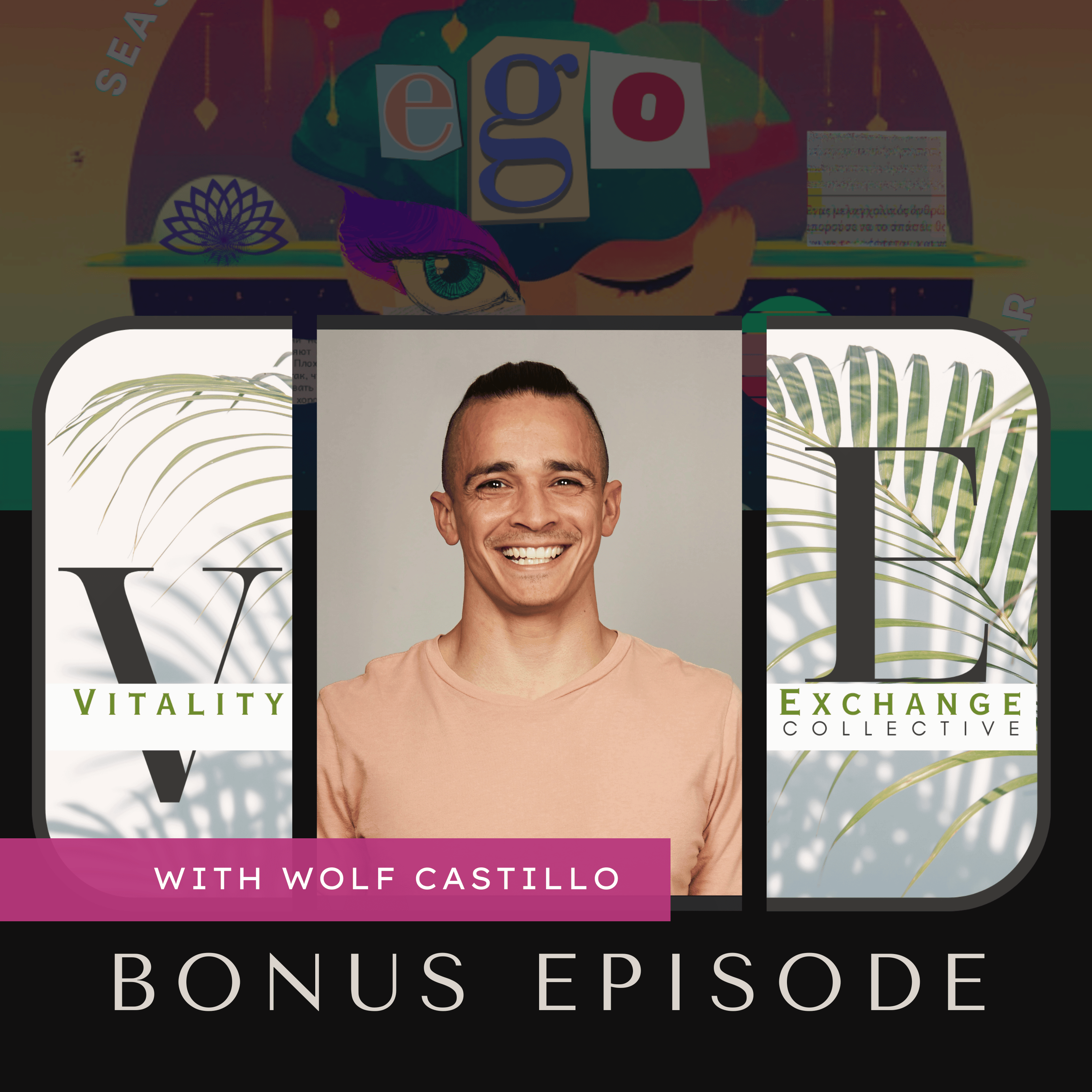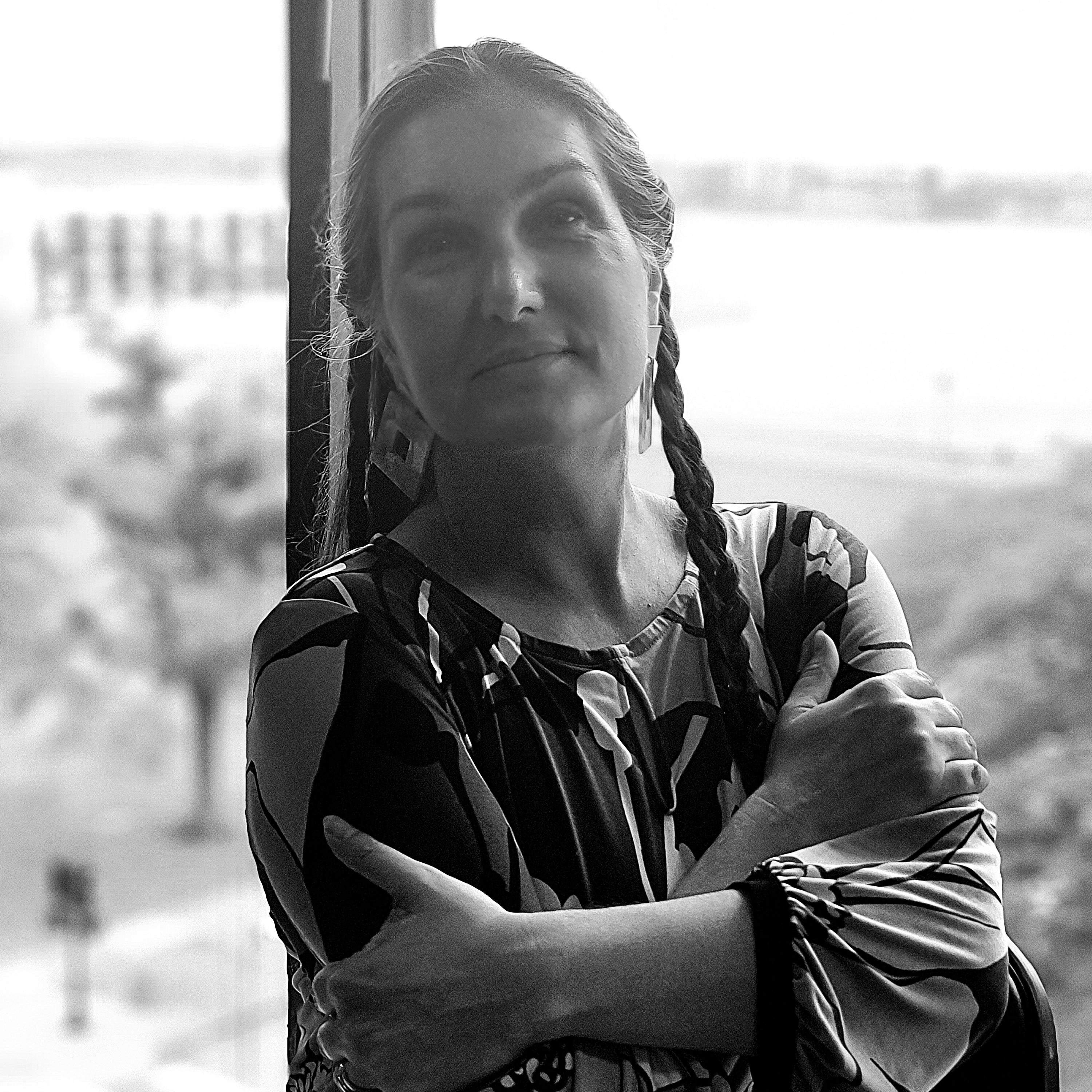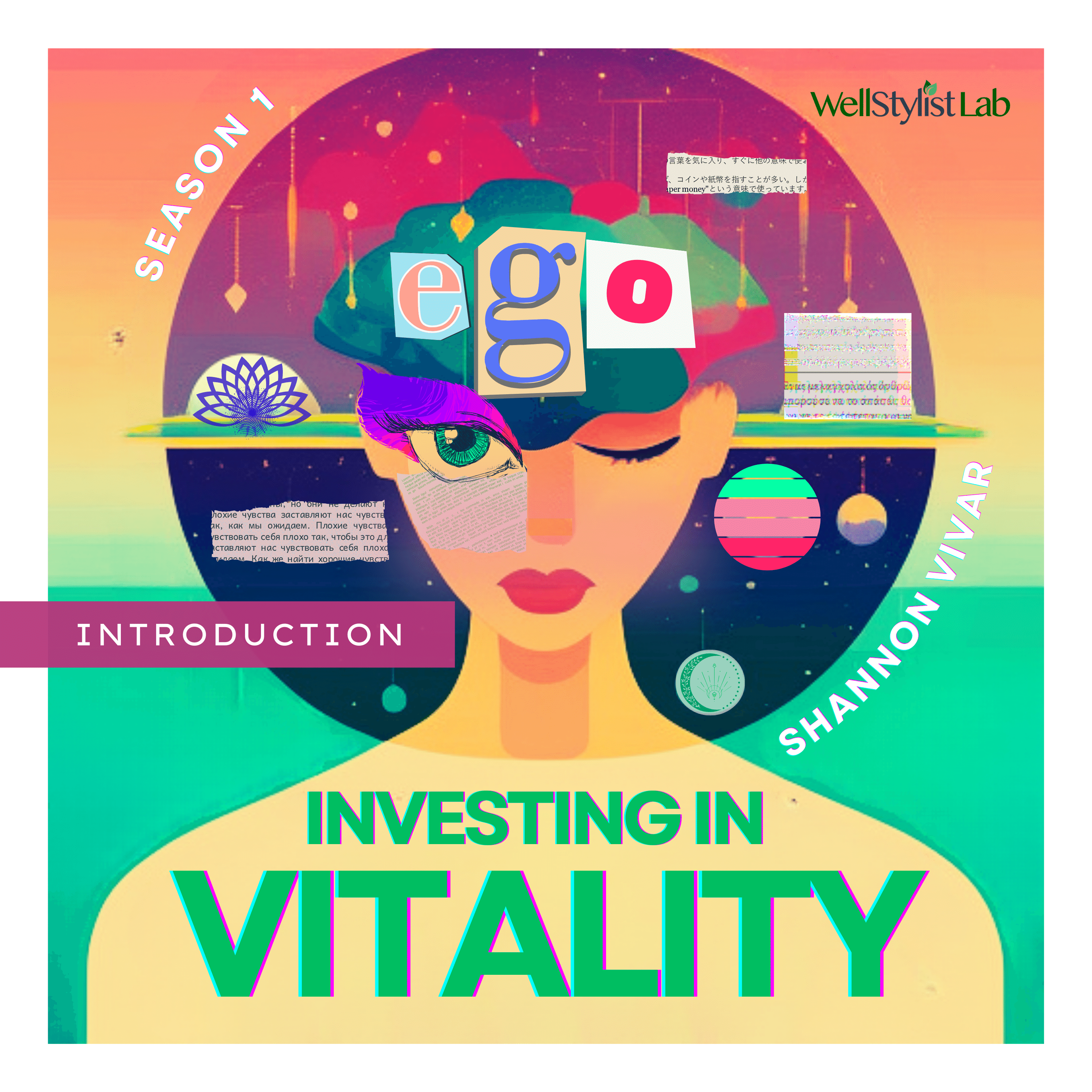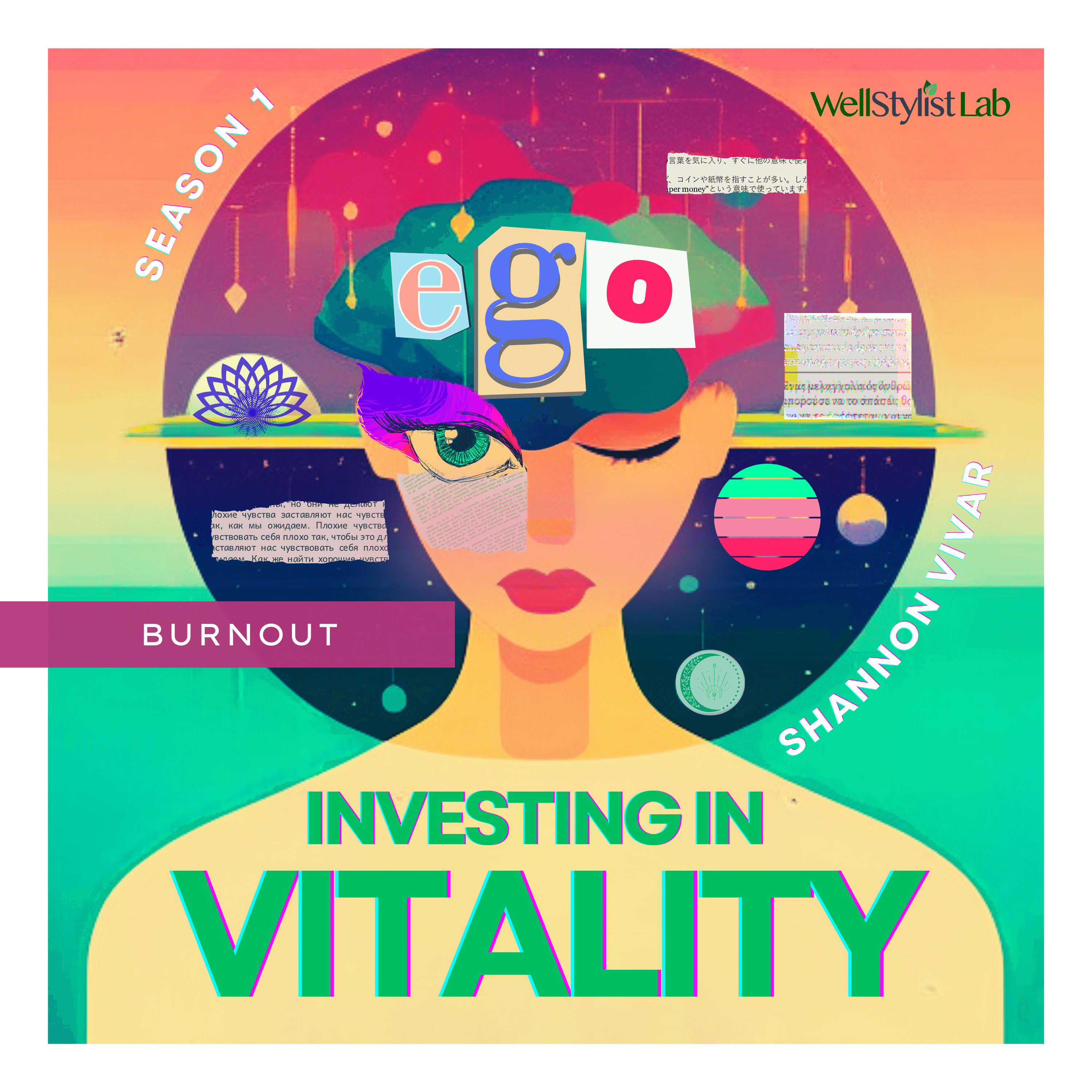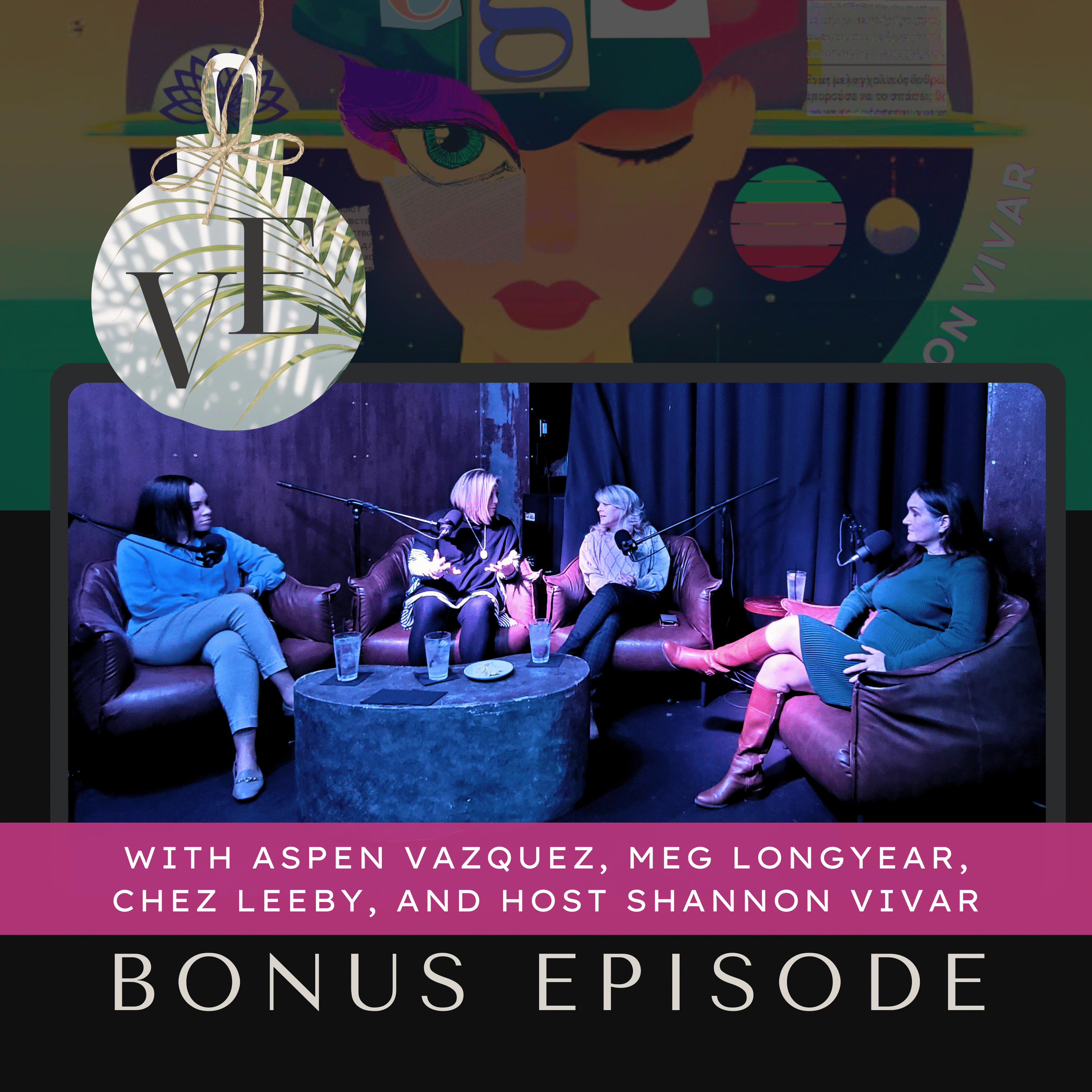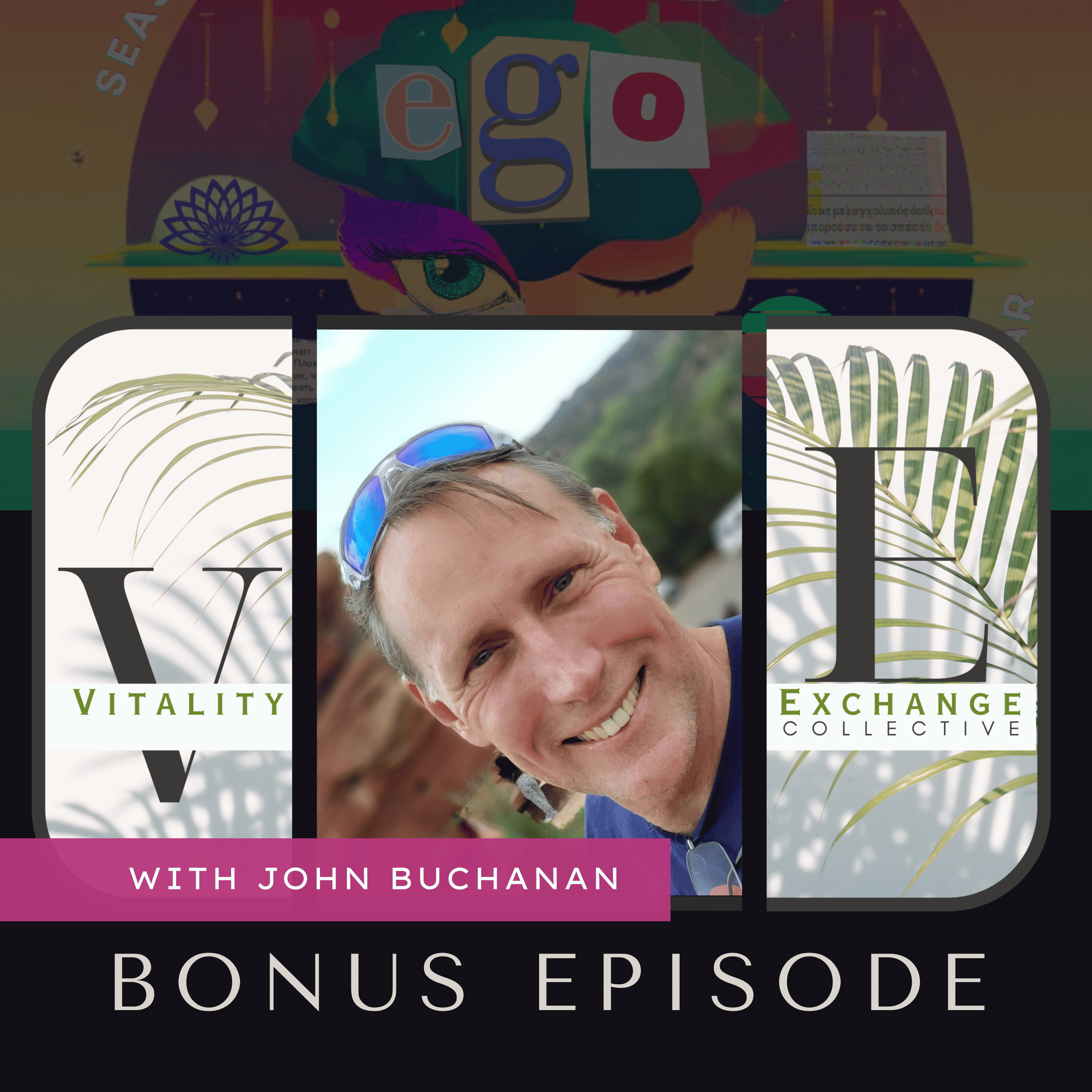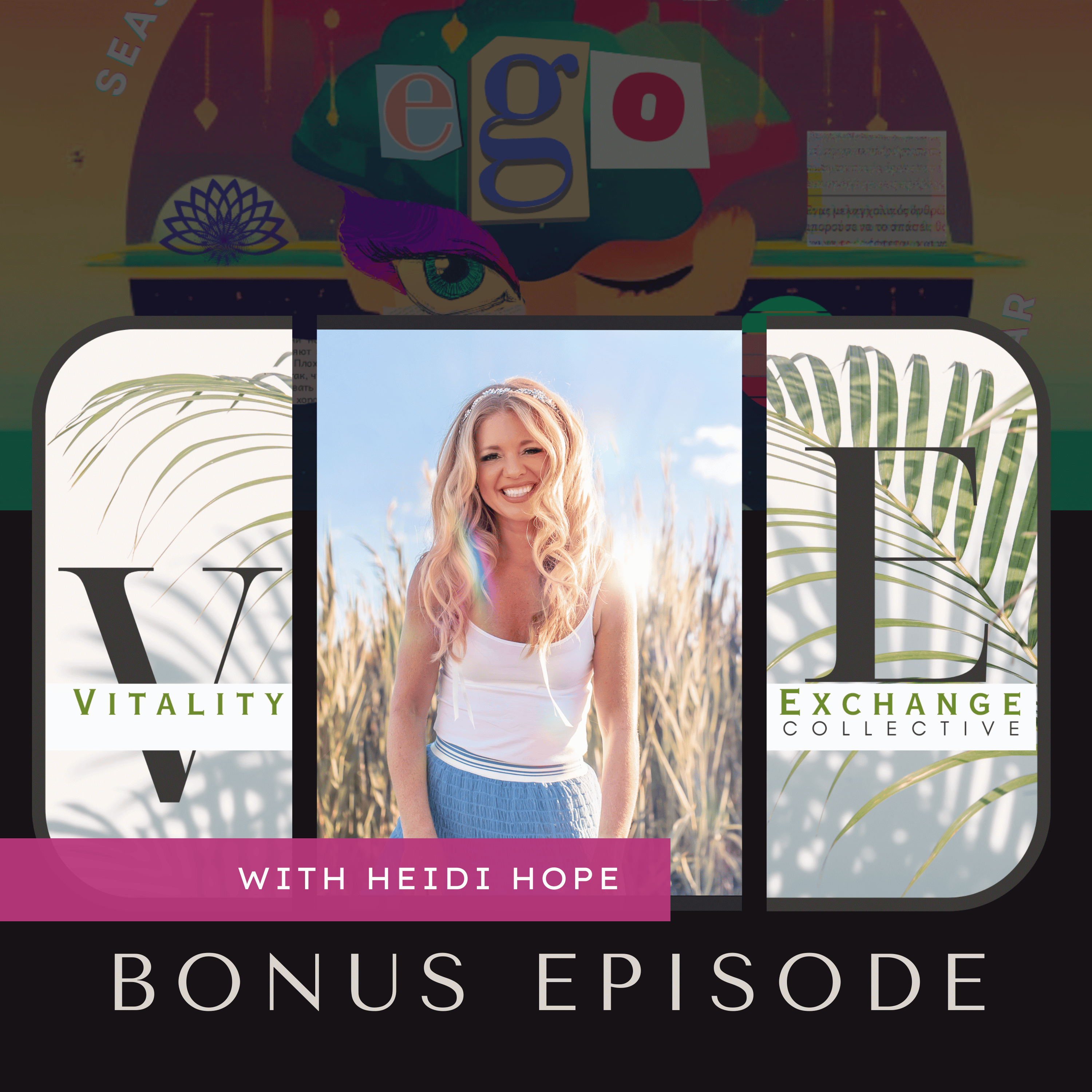Have you ever felt like your decisions aren't always your own? This bonus episode contains a clip from a recent Vitality Exchange conversation between Shannon Vivar and Wolf Castillo, a relationship and self-expression coach. Our bodies truly are amazing, and it is crazy how subconscious programming shows up in our daily lives. Their discussion weaves between self-awareness, survival strategies, emotions, and even a lion or two. The full conversation is available for Vitality Exchange members at community.wellstylistlab.com.
View Full Transcript
Episode Transcript
Welcome to Vitality Exchange Boosting Conversations, the interview series behind the Investing in Vitality podcast. On today's bonus episode, I'm sharing a clip from my conversation with Wolf Castillo. Wolf is an accountability and performance coach, co creator of the Cold Experiment, and podcast host of Follow the Wolf.
We talk about how subconscious programming in our body impacts our perspectives and decisions. The full conversation with Wolf can be found in the Vitality Exchange group within the WellStylist Lab community. platform. It really is challenging because of the way the body works, right? The way you've trained your body to respond over so many years that when you start to say, Hey, I want to change my life.
I want to change my patterns. You can recognize the patterns, but even after recognizing them, they say, once you can make a habit after 60 days, it's ingrained. I don't find that as the truth. It's not, there's literature that says otherwise. It depends, it's a range, they say like as little as like a couple of days to a few days depending on like how intense it is, to like hundreds of days.
Just depends. Like what you're pointing at that I think is really fascinating and I wouldn't say I'm the foremost expert on this, but exactly what you're describing, I and every human being is going to struggle with it because what we're bumping up against is subconscious programming. And as you and I listening to Dr.
Joe Dispenza know, The body is the subconscious mind, meaning when I go to grab my toothbrush and I brush my teeth, I don't have to think about how to do that. My body just knows and it does it automatically. We were finding ourselves compulsively going to grab our phone to check Twitter, Instagram, whatever.
It's just a habituation. We go into the programming. We become automatic. Well, it saves energy. Right. It's efficient. It's actually a brilliant design because our survival is based off our ability to have energy in any given moment if a lion's going to attack us in the savanna. But we don't live in that time.
Our brain is… I'm fairly certain there's a lion that lives outside my door. I don't know. Inside of you. It's like, rawr! I must get all of my tasks done.
I do think that your environment is super important as well because if the environment is not conducive to those… It's almost like you're just sludging through tar. Your health and wellness, your vitality is so much more than just the way you look or even the way you think and the way you feel. I mean, there's everything.
It's your environment, the connections to other people, your community, your contributions. There's just so much. That we don't associate with our health and well being. And maybe it's marketing. Maybe it's social media. Maybe it's just the education system. We have all of these standards that are built on somebody else's perspective.
And then we're always trying to like hold ourselves up to those standards. And I just feel like that actually causes more stress. Like it's okay to not be average. Nobody's average. Comparison is the thief of joy. I'm a huge believer in the importance of our feelings and our emotions. And I don't think that all of our decisions should be based off of our feelings and our emotions.
Because if I always first honor the feelings and emotions, say this is truth, that means any time that someone says something that triggers me, they're wrong. You made me feel something, versus you said something that brought something up within me. And if I pause, because my nervous system has just gone into a state of dysregulation, it's gone into a state of stress.
Huh. My body equivalent is thinking we're getting chased by a lion. In a sense. Right? It's in a stress response, it's in survival, it wants to survive. Well, some of us, the way we learned to survive was we put up armor, we pulled out our sword and said let's go to battle. And we start dropping like heat on you, like you're arrogant, you're arrogant, right?
We're going to be fighting here, Razer. We're going to fight, right? That's how some of us learn to cope. And then some of us, this was more my tendency, some of us learn to take it on the chin. You're right, I'm bad, I'm wrong, I am arrogant. You're so right. That was how I learned to survive. And if we don't recognize our, like, survival strategy and how we respond, but it's like we go from reacting to responding.
And that's the difference between reacting versus responsibility. It's our ability to respond in times of stress. Hence why we practice meditation or yoga or breath work or anything. Because we're just learning how to regulate ourselves. Talking about the cold experiment, the entire slogan was helping each other learn how to overcome and conquer the cold moments, the cold, stressful, uncertain moments in life.
It does, though, beg the question about individualism and collectivism, right? So, there's this dichotomy where I feel like our society is very individualistic. And we talk about, oh, me, me, me. Even though we're really afraid to express ourselves outside of the group. I'm bringing it back to the lone wolf versus the pack.
Like, you have to be able to operate in both. Right, right. You have to be able to operate in your self-expression, but not to the treatment. Yeah, not to the detriment of the collectivism. Right. I'm constantly being inspired by people in my environment, but something that I think is super important is, The difference between inspirational versus aspirational and not having someone else's glory or growth be used as a means of comparing ourselves against and then thusly using that as a way to punish ourselves.
So for example, I, I do acrobatics, hand balancing, handstands, acroyoga, things like that. I've had people say to me, Whoa, like the way you do handstands is like, it's incredible. It's so inspirational. And then some of those people go on and they learn to do handstands. It inspired something within them for them to go and do something that changed their life.
It's like, that's super cool. But then aspirational, it's like, whoa, like, wow, I would love to be able to do something like that. But like, I couldn't possibly, I don't have the strength or I don't have this. So seeing other people do something that is exciting or inspiring to us comes at our own detriment.
That's where I want to draw the line. Because if we were to go into whether in coaching, reflecting, or otherwise, it comes down to some perceived sense of self worth that is lowered because of someone else having a higher proficiency in something than us. But it's just, we as humans put so much salt in our own wounds.
Why that is, I can't say I always know. We could probably trace it back to some experience we had as a child. Or one of our parents or someone around us said something or did something to us that we then internalized and said, Well, you know what? Before it was mom punishing me, but now I need to be the one punishing me.
I need to be the one who's patronizing me for what I did or didn't do. So now we then, in a weird sense, we have voices inside of our head that we think are our own, but was an internalized voice of someone else. So I think that that's where we need to be having these dialogues with ourself where we are learning how to communicate with the different Parts of us if you will when the voice inside of our head goes from one of Constant detriment and self hate and self loathing to where you actually start to have fans in the crowd Cheering your name on and I know what that's like I know it's like to hate myself so much that the only voices I could hear were no one would care if I was gone What's the point of life?
Like no one loves me or cares about me, too You're doing a really great job and I'm so proud of you. And I think that that when we can start to have the conversations with ourselves and surround ourselves with people like you and the community that you're developing, whether it's listening to a podcast, if it's a group that I'm engaging with, that there's someone putting something positive in our ears and thusly into our.
Psychosomatic, so our brain and our body, that is positively encouraging us and showing us, not only encouraging us, but showing us how we can do it, to come back to a point that you made, in a way that is digestible. Because if I don't think it's digestible, Then I'm not going to do it. Or possible. Or possible.
Yeah, for you. And by the way, everything's possible. If you put your mind to it. And that's my belief. But, how do they follow, truly follow the wolf? Instagram, at followth3wolf. Except that the 'e' is a 3, because apparently someone took the other one. And then the podcasts you can listen to anywhere.
Spotify, Apple, all the places type in fall to wolf podcast. You'll find it. Thank you for listening. You don't want to miss the full conversation with wolf. We talk about all sorts of fascinating and wonderful topics from the inspiration behind his coaching career and the weird trends that he talks about on his podcast, like frog poison to his somatic trauma informed breathwork certification.
Check out the vitality exchange for more resources, interaction, and online masterclasses. Next week. on the lookout for Investing in Vitality episode number two, Burnout.
